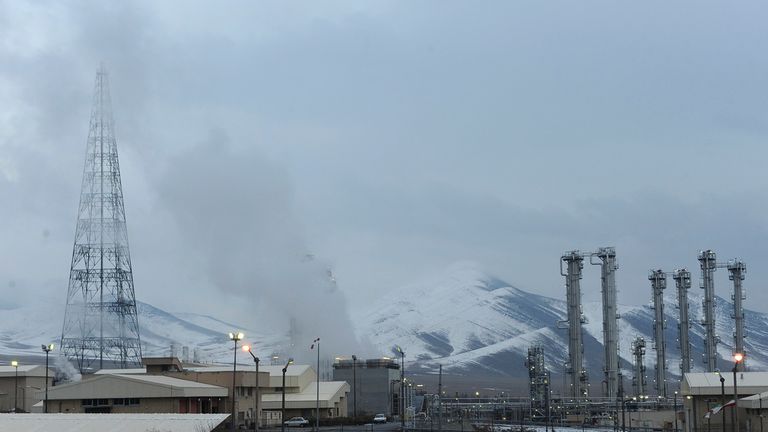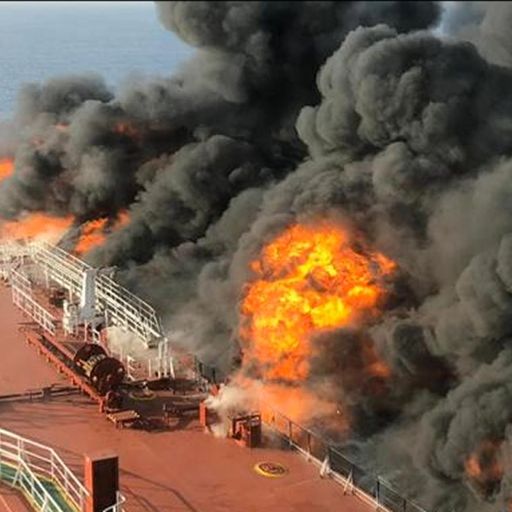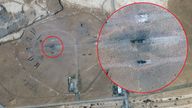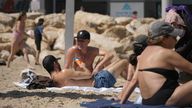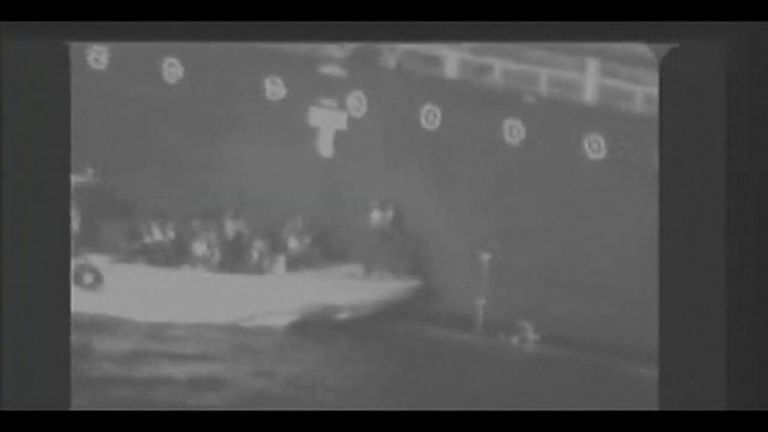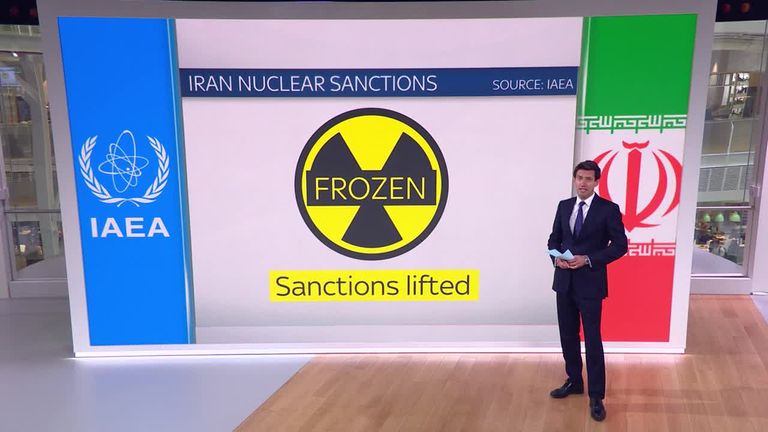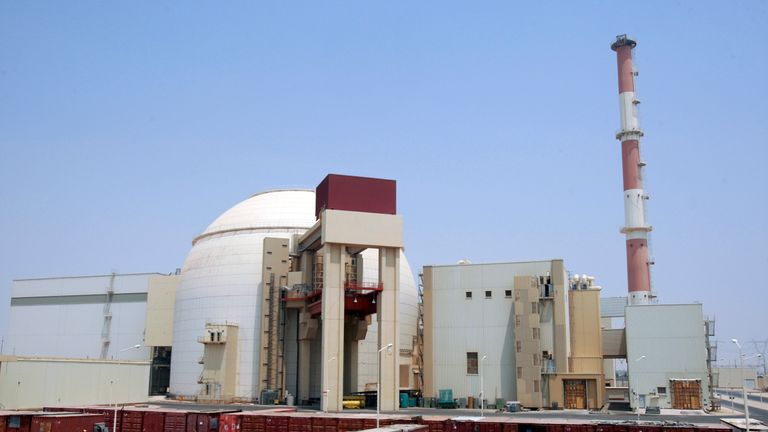Iran to pull out of nuclear treaty if EU fails to save deal, Iranian MP warns
The threat come after Iran's nuclear agency said it would break the terms of the JCPOA and increase the purity of its uranium.
Tuesday 18 June 2019 13:54, UK
Iran will pull out of the world's nuclear non-proliferation treaty if the EU fails to save another deal struck in 2015 on its nuclear programme, a senior Iranian MP has said.
Mojtaba Zolnour, a hardline member of the Iranian parliament who has often opposed President Hassan Rouhani, reminded Europe Iran had in May set a 60-day deadline "to act".
"There is not much time left until the end of the 60 days ultimatum given by Iran to the Europeans to save the (2015) deal," he said.
"After that Iran will suspend implementation of the non-proliferation treaty."
Mr Zolnour is the chairman of the nuclear subcommittee of the national security and foreign policy committee, and was formerly Ayatollah Khamenei's deputy representative to the Revolutionary Guards, Fars news agency has reported, suggesting he has the ear to the Supreme Leader.
Behrouz Kamalvandi, a spokesman for Iran's nuclear agency, told reporters in a live TV news conference on Monday morning that Iran's stockpile of low-enriched uranium will exceed internationally agreed limits within 10 days.
Mr Kamalvandi said the amount of uranium it stockpiles would now be "based on the country's needs".
"We have quadrupled the rate of enrichment and even increased it more recently, so that in 10 days it will bypass the 300kg limit," he added.
Tensions in the Middle East have increased in recent months after the US and Saudi Arabia accused Tehran of orchestrating attacks on oil tankers.
:: Listen to the Daily podcast on Apple Podcasts, Google Podcasts, Spotify, Spreaker.
The 2015 nuclear deal between Iran, the US, the UK, France, China, Russia and Germany, called the JCPOA, reduced Iran's stockpile of uranium by 98% to 300kg (660lbs), and said that quantity must not be exceeded until 2031.
However, the US unilaterally pulled out of the agreement last year and reimposed sanctions.
Downing Street has warned that "all options" will be examined if Iran fails to meet its obligations under the deal.
Mr Kamalvandi also said Iran needs to increase enrichment until some of the uranium it uses has a 20% concentration of uranium-235 - an isotope of the radioactive material that can sustain a fission reaction.
The JCPOA deal, which was designed to restrict Tehran's nuclear ambitions, also said that concentrations of U-235 should be restricted to 3.67%.
It is possible to make a nuclear bomb from uranium with a concentration of 20% U-235, but so much is needed it is not generally considered practical. Usually, much higher concentrations are required.
Nonetheless, Western governments will be concerned that the Iranian authorities appear willing to break the terms of the agreement that took years to negotiate, especially as experts say increasing concentrations to 90% is something Iran is potentially capable of.
Mr Kamalvandi appealed for help from European countries to help protect them from US sanctions, telling them there was "still time".
He said the Chinese were working with Iran on a redesign of the Arak reactor but European countries would have to help supply parts.
At a meeting in Luxembourg on Monday morning, European foreign ministers said they were still looking for more information on who might be behind the tanker attacks on Thursday.
Foreign Secretary Jeremy Hunt said on Friday that the UK's own assessment was that Iran was behind the planting of limpet mines on the tankers.
Despite British and US intelligence findings, Germany and others insisted on Monday it needed a clearer picture before wading into a row which could have serious implications in the Middle East.
Meanwhile, a senior Iranian security official said on Monday that Tehran had recently exposed and dismantled a "large US cyber espionage network".
The secretary of Iran's Supreme National Security Council, Ali Shamkhani, told the state broadcaster several CIA agents were arrested after Tehran shared intelligence with its allies.
Iran says the US has no hard evidence about its alleged involvement in the oil tanker attacks and it has consistently denied having a nuclear weapons programme.
